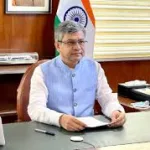In the 28th Prime Minister’s Science, Technology & Innovation Advisory Council (PM-STIAC) meeting on August 21, 2025 at National Agricultural Science Complex (NASC) in New Delhi to discuss the National Plant Health Initiative (NPHI) chaired by Principal Scientific Adviser to the Government of India, Professor Ajay Kumar Sood deliberations were done on the necessity of a coordinated and synergistic approach to enhancing plant health.In his opening address Prof. Sood emphasised the critical importance of initiating a focused Plant Health Initiative, and given India’s deep reliance on agriculture, this topic is particularly relevant in the Indian context. He noted that while the One Health Mission, previously discussed in PM-STIAC meetings, has primarily concentrated on human, animal, and wildlife health due to their distinct value chains, plant health requires dedicated attention. Prof. Sood highlighted that the present ecosystem offers a strategic opportunity to advance this initiative. Significant investments in institutional capacity building, especially through ICAR, combined with the maturity of advanced technologies and India’s success in developing digital public infrastructure and open architectures, provide a strong foundation for progress in this field. Critical importance of the Plant Health Initiative was discussed noting that agricultural losses have a direct and detrimental effect on farmers’ income and overall productivity. The experts highlighted the growing challenges posed by climate change, as well as biotic and abiotic threats to plant health, underscoring the need for proactive preparedness and the development of effective mitigation strategies. The necessity of advancing research and innovation, with particular attention to the integration of platforms that facilitate a comprehensive and holistic approach including strong data integration and analytical capabilities was also underlined. The concept of “One Health” is incomplete without safeguarding the health of both plants and livestock. Experts underscored the efficient utilisation of natural resources to promote sustainable agriculture. They have rightly noted that preventive measures such as maintaining high standards in seed quality and implementing clean plant programs are highly effective in promoting plant health, with the added advantage of being free from adverse side effects. Presentations were delivered from experts on topics covering overview of the National Plant Health Initiative and the need for future investments; the current realities of plant health in India and strategic foresight for the sector. Presentations also introduced the National Pest Surveillance System (NPSS), highlighting how AI and digital surveillance are empowering crop protection efforts. Additionally, the industry perspectives on plant health management for building a resilient India, along with insights into the role and value of open architecture were also discussed.The experts underlined that there is an urgent need to develop an integrated, AI-enabled national digital platform for proactive plant health management that leverages quality data from existing research networks. The members deliberated on ensuring quality of data over the quantity and building necessary mechanisms towards bio-security. They highlighted that an effective implementation requires strong collaboration among multiple agencies and alignment with regional and international initiatives to address both biotic and abiotic stressors comprehensively. The members also suggested that capacity building, farmer awareness, and robust governance focused on data security and frontline impact are essential to ensure success. They further added that to support this, a unified national task force should be established, alongside state-led efforts for education and eco-friendly pest management integrated with advanced epidemiological modelling and satellite data. Concluding remarks of Prof. Sood are indeed an imperative for the policy paradigm in this direction. He has comprehensively pointed out that the recent years have seen many developments towards plant health. Going further, we must avoid duplication and fragmented efforts by approaching this initiative in a mission mode, setting phased deliverables and uniting states and stakeholders as we did with the One Health Mission. The Office of PSA will ensure all discussions are coordinated and translated into a clear action plan.
National Plant Health Initiative

Sign Up For Daily Newsletter
Be keep up! Get the latest breaking news delivered straight to your inbox.
By signing up, you agree to our Terms of Use and acknowledge the data practices in our Privacy Policy. You may unsubscribe at any time.
Leave a Comment Leave a Comment







